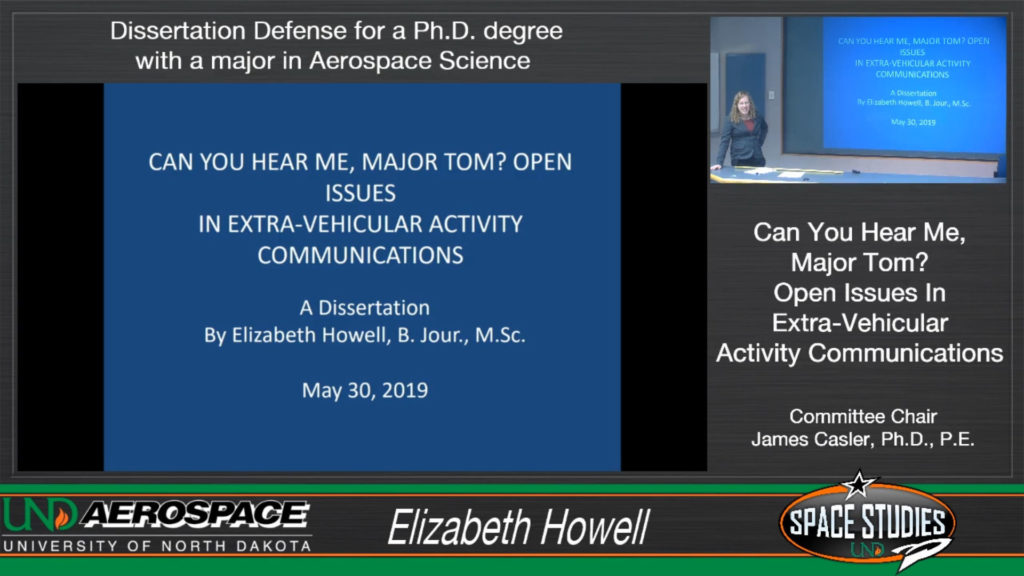
Space Journalist Elizabeth Howell defends a dissertation in Space Studies at the University of North Dakota, 30 May 2019. The topic of the presentation is “Can You Hear Me, Major Tom? Open Issues In Extra-Vehicular Activity Communications”
Howell, who was recently elected President of the Science Writers and Communicators of Canada, presented this doctoral dissertation on evaluating leadership through communications style, a human factors problem in Aerospace Science.
The presentation focused on two researched hypotheses: 1. Do large groups correct human operational errors better than small groups? 2. Does one leadership style correct errors better than another?
Howell performed a literature review to evaluate the first hypothesis. A keyword-selected pool of 107 published studies was reduced to 31 with a 10-question evaluation method, and then just two using an additional question, which together only underscored a known issue, that the English-language literature on aerospace human factors does not include extensive information on error handling and leadership in large groups. The hypothesis could not be evaluated, as more research is needed – more relevant studies that are done on, for example, 50-member Antarctic research stations, than three-member isolation teams. Being focused on the issues of a spacecraft crew, Howell’s concept is that further studies on groups of 6 to 13 people, similar to the largest Shuttle-ISS missions, is most appropriate.
Direct data from University of North Dakota research was used to evaluate the second hypothesis against rubrics obtained from the literature, particularly a set of 11 universal human values and 3 leadership styles. Audio recordings of simulated spacewalks (extravehicular activity or EVA) performed during two ILMAH missions – the simulated Mars habitat operated by the University. Howell lead an effort to transcribe and qualitatively evaluate the data against established sets of human values, to determine the leadership style of each member of the mission. However, for a number of reasons, in particular the 5-person sample size, the study results may not necessarily be significant. It was also found that while one style of leadership was the most effective in resolving errors, it also found that individuals no not rigidly adhere to the leadership types. However, this method could be applied to existing transcripts of space missions, including Apollo, and further research may refine its applicability to a wider range of historical or cultural contexts.
As with all science, it is work that never quite seems finished. However, some promising questions Howell has received from NASA Goddard may indicate that similar strategies may be applied to NASA’s archives of human spaceflight communications in the future.
